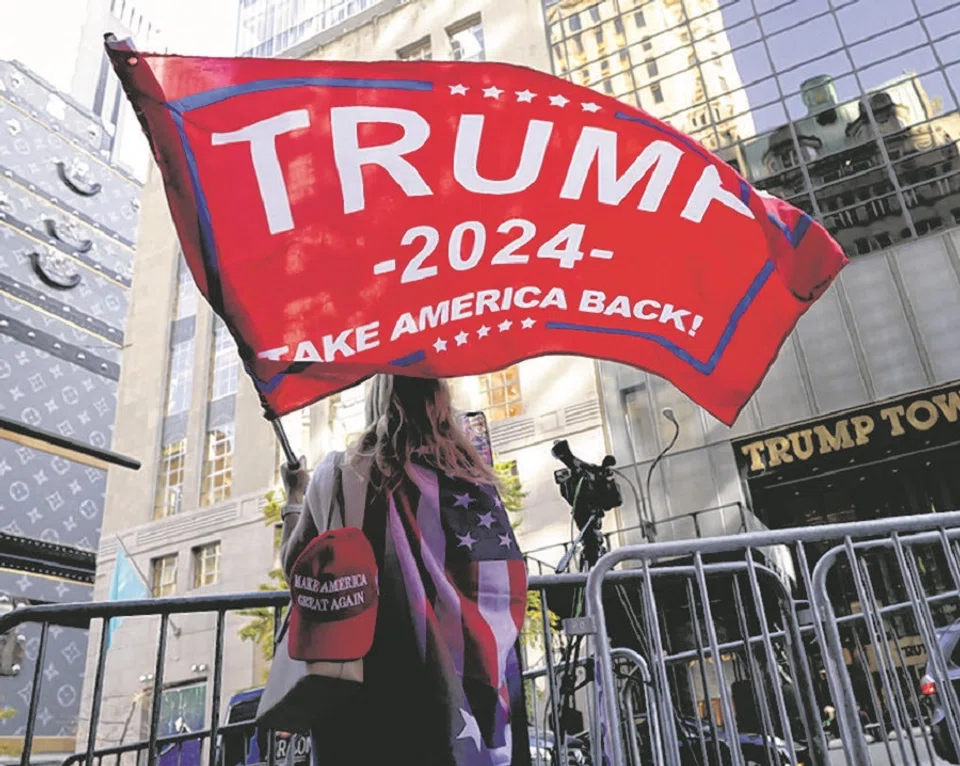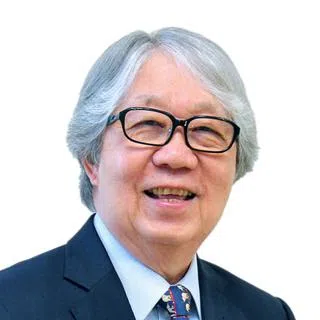Tommy Koh: Trump’s second term and its implications for Singapore and ASEAN
Professor Tommy Koh, Singapore’s ambassador-at-large, believes Singapore-US relations will likely remain strong, but cautions that ASEAN should be wary of potential trade tariffs under the incoming Trump administration.

Once every four years, the world holds its breath when the American people go to the polls to elect their president, vice-president, senators, congressmen, governors and other officials. They do so because what happens in America will affect them in one way or another.
This year’s elections were full of drama and unexpected twists and turns. The Democratic Party’s candidate, President Joe Biden, after a disastrous debate with the Republican candidate, Donald Trump, stepped aside in favour of his vice-president, Kamala Harris. Although she campaigned brilliantly, there were doubts on whether America was ready to elect a female president and one who is black American and South Asian American.
Former President Trump and his vice-president candidate, JD Vance, came from behind and defeated Kamala Harris and Tim Walz. This is Trump’s second term as president. He was the 45th president from 2016 to 2020. He lost to President Biden in 2020.
President Trump was very pleased with the fact that the US enjoys a trade surplus with Singapore. He is suspicious of countries which enjoy a trade surplus with the US.
We do not know at this time who President Trump will appoint as his secretaries of state, defence, treasury, as well as his national security adviser and chief of staff. My comments on the implications of President Trump’s victory for Singapore and ASEAN, are speculative and based on his record of performance during his first term.
On Singapore
President Trump has a very favourable attitude towards Singapore for three reasons. First, President Trump was very pleased with the fact that the US enjoys a trade surplus with Singapore. He is suspicious of countries which enjoy a trade surplus with the US.

Second, in 2019, President Trump and Singapore’s then prime minister, Lee Hsien Loong, extended the life of a 1990 memorandum of understanding (MOU) between the two countries until 2035. Under the MOU, the Singapore government allows the US Navy and Air Force access to our military facilities for transit and logistics support. President Trump appreciates the role of Singapore as a Major Security Cooperation Partner.
Third, in 2018, when President Trump looked for a venue for his summit meeting with the North Korean leader, Chairman Kim Jong-un, he chose Singapore. He chose Singapore because of its safety, efficiency and reliability.
I think President Trump and his advisers understood the strategic and economic importance of ASEAN and Southeast Asia. The problem was that he did not like multilateral institutions and long-distance travel.
On ASEAN
President Trump’s record on ASEAN is more problematic. He only attended one ASEAN summit during his four years in office. He did not host a US-ASEAN summit during his presidency.
I think President Trump and his advisers understood the strategic and economic importance of ASEAN and Southeast Asia. The problem was that he did not like multilateral institutions and long-distance travel.
ASEAN should therefore lower its expectations and not expect President Trump to attend its annual summits. ASEAN should be satisfied if the US is represented by its vice-president or secretary of state.
Possible trouble areas
Are there any areas of divergence between the US, under Trump, and Singapore and ASEAN?
I will just mention three potential trouble areas.
ASEAN would be very concerned if the US-China relationship, which is tense, were to get worse and to threaten the stability of the region.

First, President Trump is likely to withdraw, for the second time, from the Paris Agreement on climate change. This will be a setback, not just for ASEAN but for the whole world.
Second, ASEAN would be affected if President Trump were to carry out his election narrative to impose a 10-20% tariff on all imports and a 60% tariff on imports from China. Free trade is the lifeblood of ASEAN. Raising tariffs will be inimical to ASEAN’s core interests.
Third, ASEAN remembers that it was during President Trump’s first term that the US embarked on trade and technology restrictions against China. ASEAN would be very concerned if the US-China relationship, which is tense, were to get worse and to threaten the stability of the region.
In conclusion, I am very confident that the excellent relationship between the US and Singapore will continue during President Trump’s second term. ASEAN will have to lower its expectations and not expect President Trump to attend its annual summit. There are some areas in which ASEAN and the US have divergent views and interests.
The Chinese version of this article was first published in Lianhe Zaobao as 许通美:第二届特朗普政府对新加坡和亚细安的影响.





